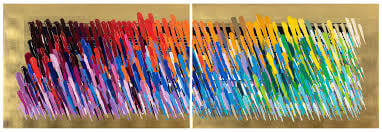A fascinating fusion of aesthetics and creativity, art designing and creation has always been essential in forming the visual environment we live in. From conventional canvases to contemporary digital platforms, the field of art design has experienced a metamorphosis that has shaped our understanding and experiences.
Handling the Intricacy of Art: Proficiency in Visual Resolved Images through Art & Design Services
The discipline of art design is complex and involves more than just aesthetics; it also involves the combination of creativity and usefulness. Within the field of Art & Design Services, experts utilise their creative abilities to create visually striking solutions.
Harmony of Craft: Improving Ideas via Innovative and Precise Artwork
These services, which range from graphic design to user experience, skillfully balance practical application and creative expression. Art and Design Services give concepts life through painstaking attention to detail, producing powerful graphics that connect with viewers on a variety of media. It’s a vibrant industry that profoundly shapes the visual landscape by fusing artistic genius with innovation.

The Value of Art Directioning
Effect on Eye Appeal
Effective message delivery and attention-grabbing art design are mostly dependent on art design. Well-designed art has the power to transmit ideas, arouse feelings in the viewer, and leave a lasting impression.
Components of Art Directioning
Shades and Structure
In art design, the ability to select the appropriate colours and pleasingly arrange components is essential. An intelligent composition and a deft use of colour can heighten the artwork’s overall effect.
The Development of Art Design
Historical Angles
Art design has a long history that can be traced back to Renaissance masterpieces and prehistoric cave drawings. Gaining knowledge about the development of artistic styles might help one better understand modern design ideas.
The Design of Art in Contemporary Culture
Innovation and Digitalization
The field of art designing has broadened its scope in the digital age. Innovative techniques have emerged as a result of technology integration, allowing artists to push creative boundaries and explore new aspects.
Techniques for Designing Popular Art
Illustration, photography, and typography
Focusing on certain methods, art design incorporates a range of aesthetics. Among the frequently used methods are typography for message delivery, illustration for narrative, and photography for moment capture.
Tools for Art Designing
Canva, Procreate, and the Adobe Creative Suite
Strong tools like Adobe Creative Suite, Canva, and Procreate are part of the art designer’s toolkit and offer a means of realising creative ideas.
Trends in Art Designing
Retro, Abstract, and Minimalism
Art designers must be up to date on current trends. Retro aesthetics, abstract art, and minimalism are a few popular trends influencing modern design.


Difficulties in Art Design
Juggling Originality with Commercial Appeal
Finding the delicate balance between expressing their creativity and achieving business goals is a problem that art designers frequently encounter. Achieving this balance guarantees that the artwork speaks to the intended audience.
Prospects for a Career in Art Design
UX/UI designers, branding experts, and graphic designers
Diverse professional paths are made possible by the field of art design, such as those of graphic designers who provide visual material, UX/UI designers who improve user experiences, and branding experts who develop distinctive identities for companies.
Art Design’s Effect on Marketing
Establishing a Brand
In today’s cutthroat industry, art design is essential to building a brand’s identity. Effective design is essential for marketing materials, packaging, and logos to convey company values and connect with the intended audience.
Creating Visual Content for Social Media
Creating Interesting Visual Content
The emergence of social media has made art designers indispensable in producing aesthetically captivating material. For online audiences to pay attention, you need to use eye-catching designs and imagery.
Art Designing’s Future
Augmented Reality and AI Integration
Technological developments will undoubtedly be embraced by art designing in the future. The creation and experience of art are set to be completely transformed by the fusion of AI and augmented reality.
A Few Pointers for Future Artists
Constant Research and Development
The path of an aspiring art designer is one of constant exploration and learning. Accept new tools, continue to draw inspiration from many artistic mediums, and never be afraid to push the limits of your imagination.
Find Out More About A Guide to Harmonizing Creativity: The Visual Symphony of Art and Designs

FAQs About Art Designing
Does art design only apply to conventional media, or does it also apply to digital platforms?
The field of art designing has expanded to include both traditional and digital media, surpassing previous limitations.
What role does art design play in successful branding?
Brands may convey their beliefs and forge a distinctive character in the market with the aid of art design, which gives them a visual language.
What part does colour theory play in the creation of artwork?
Colour theory is essential to art design because it directs the choice of colours to elicit particular feelings and deliver desired messages.
Do art designers in the digital age have any particular difficulties?
Indeed, adjusting to quickly evolving technologies and striking the correct balance between originality and economic appeal are among the difficulties faced by art designers in the digital age.
Which trends are ruling the field of art design right now?
These days, vintage aesthetics, abstract art, and minimalism are the main trends influencing contemporary art design.
A Brief Description of Art Designing
In summary, the discipline of art designing is dynamic and always changing, influencing our visual environment. The influence of art design is wide-ranging and profound, affecting everything from modern technology to historical customs. It shapes our perceptions of and interactions with the world around us.

